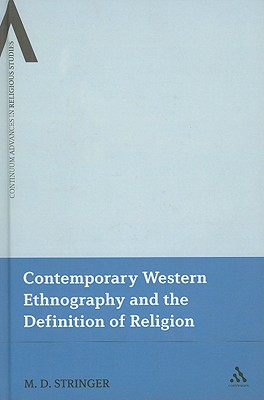Is a person sitting next to a grave of a loved one, talking to the deceased person, engaging in a religious act? Many traditional definitions of religion would probably say no. However, the research that forms the basis of this book suggests that such activity is very widespread in contemporary Britain and the author aims to argue that it is probably much more typical of a fundamental religious act than much of what happens in churches, synagogues or mosques. Beginning with the definitions of religion provided by a number of anthropologists and sociologists this book claims that the large majority of these definitions have been influenced by Christian thinking, so leading to definitions that stress the systematic nature of religion, the importance of the transcendental and the transformative activity of religion. Through a detailed exploration of a number of ethnographic studies of religious activity in various parts of England, these aspects of traditional definitions are challenged. Martin Stringer argues, borrowing Durkheim's language, that the most elementary form of religious life in many Western societies today, and by implication in many other societies around the world, is situational, mundane and concerned with helping people to cope with their day to day lives.
| FindBook |
有 1 項符合
Contemporary Western Ethnography and the Definition of Religion的圖書 |
 |
Contemporary Western Ethnography and the Definition of Religion 作者:Stringer 出版社:Continnuum-3PL 出版日期:2008-03-17 語言:英文 規格:精裝 / 128頁 / 23.4 x 15.5 x 1.5 cm / 普通級 |
| 圖書館借閱 |
| 國家圖書館 | 全國圖書書目資訊網 | 國立公共資訊圖書館 | 電子書服務平台 | MetaCat 跨館整合查詢 |
| 臺北市立圖書館 | 新北市立圖書館 | 基隆市公共圖書館 | 桃園市立圖書館 | 新竹縣公共圖書館 |
| 苗栗縣立圖書館 | 臺中市立圖書館 | 彰化縣公共圖書館 | 南投縣文化局 | 雲林縣公共圖書館 |
| 嘉義縣圖書館 | 臺南市立圖書館 | 高雄市立圖書館 | 屏東縣公共圖書館 | 宜蘭縣公共圖書館 |
| 花蓮縣文化局 | 臺東縣文化處 |
|
|
圖書介紹 - 資料來源:博客來 評分:
圖書名稱:Contemporary Western Ethnography and the Definition of Religion
|








